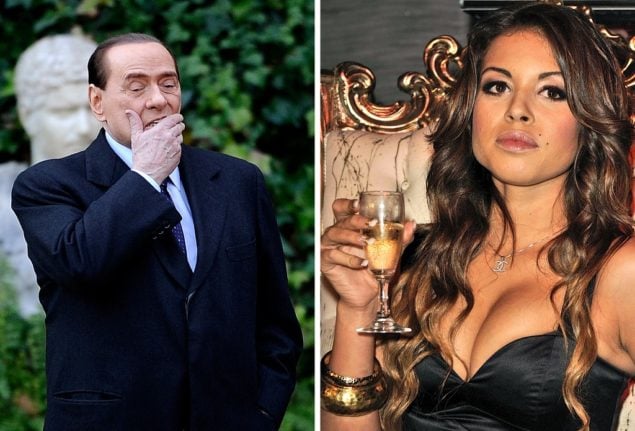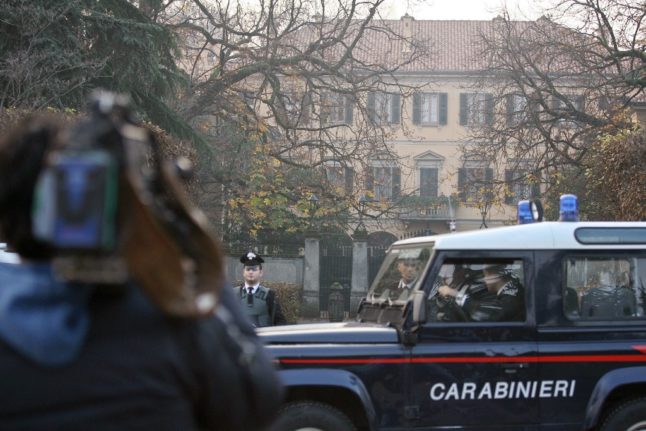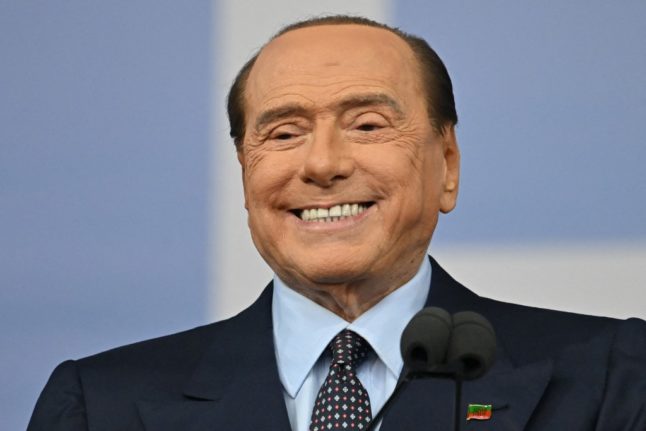The media mogul, 86, stood accused of paying young starlets and others for “silence and lies” about his notoriously hedonistic soirees, which he has always insisted were elegant dinners.
Berlusconi, whose Forza Italia party is part of Prime Minister Giorgia Meloni’s governing coalition, has long been dogged by legal battles, most of which he has won.
The senator, who did not attend Wednesday’s hearing in Milan, had already been acquitted in two other related cases of alleged bribery, in Siena in 2021 and Rome in 2022.
His lawyer Federico Cecconi said he was “enormously pleased”, although prosecutors could still appeal.
A guilty verdict would have been embarrassing for the government, and Berlusconi’s political allies were quick to congratulate him.
READ ALSO: Italy affirms support for Ukraine after latest Berlusconi outburst
Meloni said the decision “puts an end to a long judicial affair that also had important repercussions on Italian political and institutional life”.
The verdict is the culmination of a legal battle which began in 2010 when Berlusconi – then prime minister – was accused of abusing his power to protect a young Moroccan nightclub dancer, Karima El-Mahroug.
Known by her stage name “Ruby the Heart Stealer”, she had been detained by police for theft, but was released after Berlusconi claimed she was the niece of then Egyptian President Hosni Mubarak.
Berlusconi was charged with paying for sex with Ruby in 2010 when she was just 17.
Hush money
He was initially found guilty, but acquitted in 2014 after an appeals court found there was no proof he knew El-Mahroug was a minor.
Judges believed however that numerous people had lied during the trial, including El-Mahroug, who was caught on tape bragging about sex with Berlusconi.
She described orgiastic scenes at his parties, before later saying she made it all up.

Prosecutors launched an investigation that led to the Milan trial, which opened in 2017.
Berlusconi, who was prime minister three times between 1994 and 2011, was accused of doling out millions of euros in hush money in the form of houses, cars and monthly payouts.
However, his defence lawyers say the money was compensation for reputational damage for those involved in the case, and insist he was being tried “for the crime of generosity”.
READ ALSO: Italy’s Berlusconi under fire for promising Monza players ‘busload of hookers’
Sex slaves
Prosecutor Tiziana Siciliano had earlier described Berlusconi as “a sultan” who used to “liven up his evenings with a group of concubines, in the sense of sex slaves, who entertained him for a fee”.
Some of those involved say nothing untoward happened in Berlusconi’s villa, which has a private nightclub. But others described orgies and female guests dressing up as nuns to perform erotic dances.

Prosecutors had called for six years in jail for Berlusconi and between one and six years for the 27 other defendants in this case, including five years for El-Mahroug. All were acquitted on Wednesday.
The judges have another 90 days to publish their reasoning for the verdict, at which point prosecutors could decide to appeal.
Prosecutor Siciliano said Wednesday she still believed the defendants lied, but said there was a legal question mark over whether or not they were technically witnesses when they did so.
El-Mahroug said the trial had been “very scary”, adding: “Now I can live again”.
Former model Marysthell Polanco, another party guest put on trial, had told journalists her life had been “a nightmare” since the trial began.
“They cannot find guilty someone who has done nothing, where there’s no evidence, neither videos nor photos, nothing but gossip,” she said.
Prosecutors had also asked the court to confiscate 10.8 million euros ($11.5 million) from Berlusconi.
Despite multiple court cases – he claimed in 2021 to have gone through 86 trials – the former premier has never spent time behind bars.
Berlusconi was temporarily banned from political office after a conviction for tax fraud in 2013, for which he served a community sentence.
He then returned to the political front lines and was re-elected as a senator last year.



 Please whitelist us to continue reading.
Please whitelist us to continue reading.
Member comments